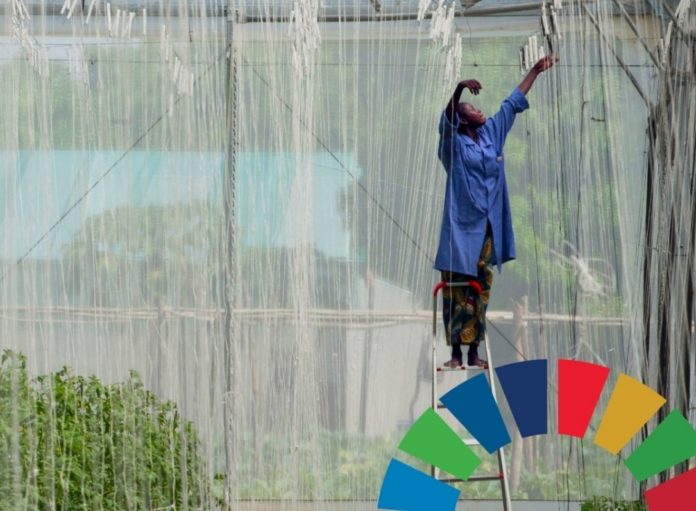
A baseline report into progress in Africa suggests African countries need to sustain efforts to eradicate extreme poverty and gender inequality.
The 2017 Africa Sustainable Development Report: Tracking Progress on Agenda 2063 and the Sustainable Development Goals also calls for improved capabilities for statistics to implement and track progress towards Africa’s own Agenda 2063 and the Sustainable Development Goals (SDGs).
Launched in New York on Thursday, it is jointly published by African Union Commission (AUC), the United Nations Economic Commission for African (ECA), the African Development Bank (AfDB), and the United Nations Development Programme (UNDP).
UNDP regional director for Africa Abdoulaye Mar Dieye said, “The positive progress that we see needs to be celebrated while accelerating efforts to diversify economies through increased strategic investments in infrastructure and innovation in order to reach our full potential.”
It notes significant progress in increasing agricultural value, improving gender parity in primary and secondary school and female representation in lawmaking.
It also notes falling child and maternal mortality and HIV, alongside increasing mobile network coverage.
However, the report suggests attention to areas of pressing concern that need to be addressed for Africa to fully reach its potential.
In sub-Saharan Africa, agriculture value is only 62 % of the world average; only 5% of agricultural land is irrigated (compared with 41 per cent in Asia and 21 per cent globally) and conservative and harmful social norms such as child marriage and female genital mutilation persist.
The report addresses leveraging Africa’s youth potential.
“If you want to reap a dividend you must first start by investing,” said Kwesi Quartey, AUC deputy chairperson.
The report draws attention to high rate of road traffic-related deaths, 26.6% much higher than the global average 17.4 % in 2013.
Less than one percent of the region’s GDP is invested in research and infrastructure, compared with 2% globally.
And “unregulated and destructive fishing practices” prevalent in 38 coastal states pose potential threats to the realization of the sustainable development agenda.
The report also addresses the gap in the continent’s data collection capacities, which are seen as critical for the evidence-based policy making and tracking of progress towards the Agenda 2063’s 20 goals and 174 targets and Agenda 2030’s 17 goals and 169 targets.
“Six out of every 10 SDG indicators cannot be tracked in Africa due to data constraints. Strengthening our data ecosystem is therefore imperative not only for performance tracking but for informed policymaking.” said ECA Executive Director Vera Songwe.
The report estimates that 1 billion dollars is needed annually to allow 77 of the world’s lowest income countries to establish robust and reliable statistical systems that capable if measuring and sustaining SDGs.
“The increasing demand for data and statistics under the 2030 Agenda and Agenda 2063 is an opportunity for Africa to embark on the data revolution in order to improve statistical capacity in all domains” the authors indicate.
























